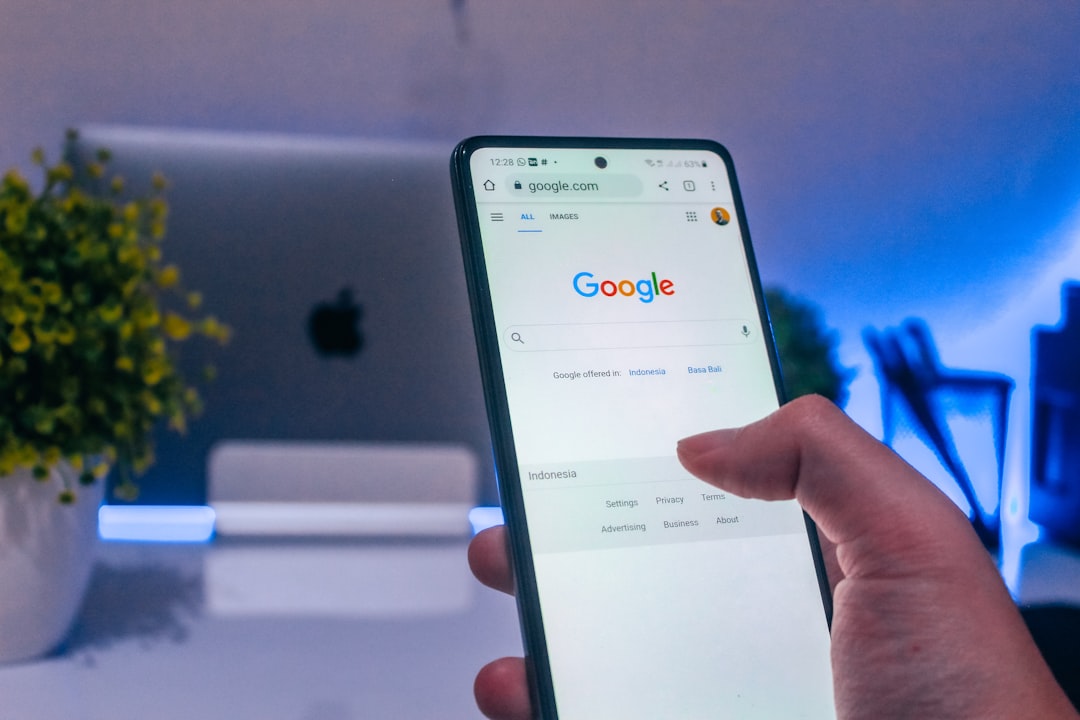What is SEO (Serch Engine Optimization) and how does it work?
In today's digital age, it's no secret that having a strong online presence is crucial for any business. But how do you ensure that your website stands out from the millions of others vying for attention? The answer lies in SEO or Search Engine Optimization. SEO is the key to unlocking the doors to online success.
It is a meticulous process that involves optimizing your website's content and structure so that it ranks higher in search engine results. By strategically using relevant keywords, creating informative and engaging content, and building quality backlinks, you can enhance your website's visibility and attract more organic traffic.

Photo by Gilles Lambert / Unsplash
SEO is like a magic wand that can transform your business by driving targeted visitors who are actively searching for what you have to offer. It is an investment that puts your business on the map and ensures its long-term growth and profitability. So, don't let your competitors steal the spotlight.
Embrace the power of SEO and watch your business soar to new heights!
ps. We have a passion for SEO and helping small businesses.
1. Introduction to SEO
Are you ready to take your site to the next level?
Introducing SEO, your new secret weapon in the world of online marketing. SEO, or Search Engine Optimization, is a powerful tool that can boost the visibility of your webpage and drive more organic traffic to your pages.
By optimizing the content and structure of your webpage, you can improve its search engine rankings and attract more visitors who are actively searching for what you have to offer.

Photo by Stephen Phillips - Hostreviews.co.uk / Unsplash
But don't worry, you don't need to be an expert to get started with SEO. With a little time and effort, you can learn the basics and implement simple strategies that will make a big difference.
2. Importance of SEO for businesses
SEO is super important if you want your business to be all over the internet and get more people to visit your webpage. In this day and age, you gotta have a strong online presence to stay ahead of the competition.
SEO helps your business rank higher on search engine results so that customers can easily find you.
By tweaking your webpage content and structure, you can attract more people to visit your site without having to pay for ads. This means more people checking out your stuff and more chances to make sales.
On top of that, SEO also makes you look credible and trustworthy to potential customers.
When you show up on the first page of search results, it makes everyone think you know what you're doing. This makes them more likely to trust you and buy from you.

Photo by Arkan Perdana / Unsplash
Have you ever given a chance to a business that appeared on the second page of Google search results? Maybe Never...

Pinterest from 9gag.com
Furthermore, SEO is an excellent long-term investment that offers cost-effective results. By optimizing your site for relevant keywords and consistently updating your content, you can continue to reap the benefits of SEO for years to come.
In conclusion, incorporating SEO strategies into your business can be a game-changer, leading to improved visibility, increased traffic, and ultimately, a boost in your overall success.
3. How search engines work
So, let's talk about how search engines work.
When you type something into that little search bar, like "best pizza in town" or "how to fix a leaky faucet," the search engine does a little dance behind the scenes to give you the best results. It all starts with keywords. These are the words and phrases that everyone uses to search for stuff.
For example, if you have a sports blog and someone types in "best basketball shoes," you want your site to pop up, right? That's where terms related to your business come into play.
You need to make sure your content is filled with all the juicy keywords that will catch Google's attention. But here's the thing - it's not all about stuffing as many keywords as possible into your posts.
Nah, Google is smart.
It rewards the best content with relevant keywords in your niche. So, it's important to create high-quality, engaging content that everyone want to read.
Show Google that you're an expert in your field and watch as your site climbs up those Google search results.
It's like a game of cat and mouse, but if you play your cards right and create killer content, you'll be the one chasing the mice, or rather, the clicks and traffic.
4. Key components of SEO
Alright, the main things in SEO and key components.
First things first, having an agency or a site master who knows what they're doing can be a game-changer.
Seriously, it can save you so much time and money. And we all know time is money when you're running a business, right? So, having someone who understands where and how to add SEO to your website is crucial.
One of the most important components of SEO is keyword research.
Yeah, you heard me right. You gotta do your homework and find those golden keywords that will help your website rank higher on Google search results.
It's like a treasure hunt, but instead of gold coins, you're looking for words and phrases that people use when they're searching for stuff online.

Photo by Ashin K Suresh / Unsplash
Next up, we have on-page optimization.
This is where things get a little technical, but don't worry, it's not rocket science. It's all about making sure your website is super friendly to search engines. You wanna make sure your content is well-structured, your URLs are clean, and your images are properly optimized.
Trust me, these little tweaks can make a big difference in how search engines see your website.
And let's not forget about link building.
This is like the popularity contest of the SEO world. The more high-quality and relevant websites that link to yours, the more search engines will see your site as an authority.
It's all about building those connections and getting other sites to vouch for you. So, don't be shy about reaching out to other webpages owners and asking for some link love. So there you have it, folks.
These are just a few of the key components of SEO.
Of course, there's a lot more to learn, but hey, Rome wasn't built in a day, right?

Photo by Mathew Schwartz / Unsplash
Take your time, keep learning, and soon enough, you'll be a master of SEO yourself.
a. What to look for in On-page SEO services?
When it comes to on-page SEO services, there are a few key things to look for. First and foremost, you want to make sure that the company you choose has experience in this area. SEO is constantly evolving, so it's important to work with a team that is up-to-date on the latest best practices and algorithms.
Additionally, you should look for a company that offers a range of on-page SEO services.
This could include keyword research, optimizing meta tags and headers, improving page site speed, and fixing broken links.
The more comprehensive the services offered, the better chance you have of improving your webpage ranking on search engine results pages.
Another important factor to consider is the company's approach to on-page SEO. Some companies may use black hat techniques or try to trick search engines, but this is not a sustainable or long-term strategy.
Instead, look for a company that focuses on creating high-quality, user-friendly content and optimizing your website for a positive user experience.
Finally, consider the company's track record and testimonials from past clients.

Photo by Austin Distel / Unsplash
If the company has a history of delivering results and satisfied customers, that's a good sign that they can provide you with the on-page SEO services you need.
b. What should I check out in Off-page SEO for my website?
So, you're trying to boost your website's visibility and attract more traffic, huh?
Well, one thing you definitely should not overlook is Off-page SEO. Now, this is the stuff that happens outside of your site, but still plays a crucial role in determining your search engine rankings.
One great way to start with Off-page SEO is by getting your webpage information listed on directories like YellowPages and Yelp.
These are some of the most popular listings out there, and getting your business on them can work wonders for your online presence. Not only will you be able to reach a larger audience, but people will also have easy access to your site, address, and phone number. It's like killing two birds with one stone!
Another thing you might want to consider is building backlinks. These are links from other sites that direct users back to your site.

Photo by Emiliano Vittoriosi / Unsplash
The more reputable and authoritative the site is, the better it will be for your SEO. So, start reaching out to other businesses or industry influencers and ask if they would be willing to link to your site.
This can help improve your site's credibility and increase your chances of ranking higher in search results.
Plus, it's a great way to build relationships and network with other professionals in your field. So, go ahead and explore the world of Off-page SEO. It may require some extra effort, but the results will be worth it in the long run.
c. What is Technical SEO?
Technical SEO refers to the optimization of a website's technical aspects to improve its search engine rankings.
It involves making sure that a webpage is easily crawlable and indexable by search engines, and that any potential issues or obstacles that may hinder search engine bots from properly understanding and analyzing the webpage content are addressed.
One important aspect of technical SEO is site speed - a slow-loading site can negatively impact user experience and search engine rankings.
Technical SEO also includes optimizing the site's code and structure to ensure that it is clean, organized, and easily understandable by search engine bots.
This may involve fixing broken links, improving internal linking, and optimizing the website's sitemap.
Additionally, technical SEO focuses on mobile optimization, as mobile-friendliness has become a crucial ranking factor. It involves making sure that the site is responsive and adaptive to different devices and screen sizes.
Another important aspect of technical SEO is ensuring that the site is secure and that there are no security vulnerabilities that could be exploited. This includes implementing HTTPS, checking for and resolving any potential security threats, and regularly updating the website's software and plugins.
Furthermore, technical SEO involves optimizing the site's URL structure, meta tags, and schema markup to provide search engines with clear signals about the content and purpose of each page. It also includes optimizing the site's XML sitemap and robots.txt file to instruct search engine bots on how to crawl and index the site.
Overall, technical SEO is crucial for ensuring that a site is properly optimized for search engines, which can ultimately lead to improved visibility, higher search engine discovery, and increased organic traffic.
5. Keyword research and optimization
Keyword research and optimization is a crucial aspect of any successful digital marketing strategy. It involves identifying the words or phrases that potential customers are using to search for products or services online.
By targeting these keywords in your website content and marketing campaigns, you can increase your visibility in search results and drive more traffic to your site.
To conduct effective keyword research, start by brainstorming a list of relevant keywords that are relevant to your business. Then, use keyword research tools like Google Keyword Planner or SEMrush to get more insights into the search volume and competition level for each keyword.
This will help you prioritize which keywords to focus on. Once you have identified your target keywords, it's time to optimize your website content. Make sure to include your keywords naturally throughout your website, including in your page titles, meta descriptions, headers, and body copy.

Photo by Melanie Deziel / Unsplash
Avoid overusing keywords, as this can be seen as spammy by search engines. Additionally, focus on creating high-quality, engaging content that provides value to your users.
Remember, keyword optimization is not a one-time process.
It's important to regularly review and update your keyword strategy based on changes in search trends and your business goals.
By continuously optimizing your website for relevant keywords, you can stay ahead of the competition and improve your search engine discovery.
6. Content creation and optimization
So, you wanna know about content creation and optimization, huh? Well, let me break it down for you in simple terms.
Content creation is the process of crafting valuable and engaging content that will attract and engage your target audience.
It's like cooking up a delicious meal that everyone can't wait to sink their teeth into. But it's not just about creating any old content. You gotta make sure it's optimized too.

Photo by Johnathan Macedo / Unsplash
Optimization is about making your content more visible and accessible to search engines like Google.
Think of it like seasoning your dish just right so it stands out in a sea of mediocre meals. You need to sprinkle in some keywords, play around with meta tags, and make sure your headlines are attention-grabbing.
All of these things help improve your chances of higher search results and getting more eyeballs on your content.
And hey, who doesn't want that, am I right?
So, whether you're a blogger, a business owner, or just a regular person looking to share their thoughts online, understanding content creation and optimization is key.
It's the secret ingredient that can take your content from forgettable to unforgettable. So get out there and start creating some killer content that will have the internet buzzing!
7. HTML and meta tags for SEO
HTML is like the backbone of any web page. It's the language that's used to structure and format the content on a website. But HTML is not just about making things look pretty - it also plays a crucial role in optimizing a site for search engines. And that's where meta tags come into the picture.
Meta tags are snippets of code that provide information about a webpage to search engines. They're like little bits of data that help search engines understand what a page is all about. There are different types of meta tags, but one of the most important ones for SEO is the meta description tag which makes it easy for search engines to see a page.
This tag gives a summary of what a page is about and appears on the search results page. So, having a well-crafted meta description that includes relevant keywords can help improve the visibility and click-through rate of a webpage.
Another important meta tag is the meta title tag, which defines the title of a webpage that appears in the browser tab.
It's crucial to have a unique and descriptive title tag for each page of the website to optimize its search results. So, HTML and meta tags work together to improve a website's SEO, making it more attractive to search engines and increasing its chances of being seen by users.
8. Link-building strategies
It is important to have a solid backlink profile for your website, right?
Well, there are a few techniques you can try to boost your link-building game.
First off, guest posting is a classic move.
Find some blogs or websites in your niche and reach out to them. Offer to write a high-quality article or blog post in exchange for a backlink to your site - it's a win-win situation. Another strategy you can try is broken link building. This involves finding broken links on other websites and reaching out to the site owners to let them know.
You can offer to replace the broken link with a link to your content. It's a bit more time-consuming, but it can pay off big time. And don't forget about social media. Building relationships with influencers in your industry and sharing your content with them can lead to some valuable backlinks.
Plus, it helps you get your brand out there and reach a wider audience.
Lastly, don't underestimate the power of email outreach. Contacting other website owners or bloggers and asking them for a backlink can be a great way to build connections and secure those links. So, give these strategies a shot and watch your link profile grow!
9. Social media and SEO
So, here's the deal with social media and SEO. Do you know how SEO is all about getting your website to rank high on search engines and stuff?
Well, social media can help you out with that.
See, when you share your website content on social media platforms like Facebook, Twitter, and Instagram, it can boost your SEO game.
The more people who see and engage with your posts, the more signals search engines get that your website is legit and worthy of a high ranking. Plus, social media can help you get more backlinks, which is like gold in the SEO world.
When people like what they see on social media, they might link to it on their websites, and those backlinks tell search engines that your content is popular and valuable.
So, don't sleep on social media when it comes to SEO, my friend.
And here's another thing - social media profiles can show up in Google results too.
That means when someone Googles your brand or business, your Facebook or Twitter page could show up right alongside your website.
So, make sure you're optimizing your social media profiles with keywords and relevant information.
You never know, social media might just become your secret weapon for conquering the SEO game.
10. Local SEO and its significance
Local SEO is super important for businesses that have a physical location or serve a specific geographic area.
It helps them increase visibility in search result pages when users search for products or services in their local area.
With the majority of consumers using search engines to find local businesses, having a strong local SEO strategy is crucial.
By optimizing your website and online presence for local search, you are ensuring that your business appears at the top of search results when people are looking for what you offer in your area.
This can lead to more traffic to your website, increased foot traffic to your store, and ultimately more sales.
Local SEO is all about making it easy for potential customers to find you, both online and offline.
It involves various techniques like creating and optimizing your Google My Business listing, getting positive online reviews, using location-specific keywords in your site content, and ensuring that your site is mobile-friendly.
By investing time and effort into local SEO, you are putting your business in the best position to succeed in your local market. So, if you haven't already, it's time to start focusing on local SEO to rank higher on Google and get to reap the benefits it can bring to your business.
11. Mobile optimization and SEO
Let's talk about mobile optimization and SEO. So, you know how everyone is always on their phones these days? Well, that means your website needs to be mobile-friendly if you want any chance of ranking high in search results.
I mean, think about it. If someone is searching for something on their phone and they click on your site only to find it's loads too slow and impossible to navigate, they're probably just going to bounce right off. And you don't want that!
That's where mobile optimization comes in. It's all about making sure your site looks and works great on phones and tablets.
This means having a responsive design, organizing your content in a user-friendly way, and optimizing your images and videos to load quickly.
But it's not just about user experience. Mobile optimization is also super important for SEO. See, search engines like Google prioritize mobile-friendly websites in their rankings.
So, if your site isn't mobile-friendly, you're shooting yourself in the foot when it comes to SEO. And trust me, you do not want to do that! So make sure you take the time to optimize your site for mobile. Your users (and Google) will thank you for it!
12. SEO analytics and tracking
SEO analytics and tracking, shall we?
Now, I know this might sound a bit technical, but bear with me.
Essentially, SEO analytics and tracking are all about keeping tabs on how well your site is performing in search engines. It's like having a personal detective uncover data about your site's traffic and visibility.
You see, SEO analytics allows you to gather information on things like which keywords people are using to find your site, how long they're spending on each page, and whether they're converting into customers or not.
It's like having a window into the minds of your site visitors! And tracking goes hand in hand with analytics, as it helps you monitor changes and trends over time.
It's super handy to see how your site is progressing in the rankings and whether your strategies are paying off. Plus, you can use this data to make informed decisions on what areas of your site need improvement. So, if you want to boost your site's visibility and make sure it's attracting the right audience, SEO analytics, and tracking are your best friends.
Don't be intimidated – there are plenty of tools and resources available to help you make sense of it all. Trust me, once you start digging into the world of SEO analytics, you'll be amazed at the insights you can gain!
We recommend tools like SEMrush and SE Ranking.
13. SEO best practices and guidelines
SEO best practices and guidelines. Ah, the magical world of search engine optimization, where the internet gods decide which websites are worthy of being shown and which ones will forever be lost in the abyss of page 10.
It's like a virtual popularity contest, and if you don't play by the rules, your website might as well be wearing a neon sign that says, "I am invisible!"
So, what are these mystical "best practices" and "guidelines" that will supposedly lead to online success? Well, my friend, let me enlighten you.
First and foremost, keyword research is essential. We're not talking about randomly picking words like "unicorn" and "marshmallow" (although that does sound delicious), but rather finding the perfect balance between relevance and search volume.
It's like trying to find the One Ring without the fiery eye of Sauron spotting you. Next up, we have on-page optimization. This is where you sprinkle keywords like fairy dust all over your site, making sure they're in your URLs, titles, headings, and content.
But beware! Too much keyword stuffing and you'll end up sounding like that overly eager salesperson who won't stop talking about their product.
Nobody likes that guy.
And let's not forget about link building. It's like building a bridge to your site, but instead of concrete and steel, you're using backlinks. The more links you have from reputable sites, the stronger your bridge becomes.
Just don't try to cheat the system by buying links from sketchy sites. Google is like a Sherlock Holmes detective, and those shady links won't fool them.
So there you have it, my fellow adventurers in the land of SEO. Follow these best practices and guidelines, and maybe, just maybe, the internet gods will bless you with a first-page ranking.
or you can just hire us to get the job done right. ( Not a sales pitch... maybe a little) --> Cosmoflare.com
14. Common SEO mistakes to avoid
So, you decided to take a crack at SEO?
Well, first of all, kudos to you for diving into this wild world.
But, hold on a second! Before you go all in, let's make sure you avoid some common SEO mistakes that can turn your dream into a nightmare.
First on the list is keyword stuffing ... you know "that sales guy nobody likes".
We get it, you want to rank high on search engines, but stuffing your content with keywords is not the way to go. It's like trying to fit into your favorite pair of skinny jeans after a massive feast.
Sure, you might get in, but it'll be uncomfortable, and everyone will notice.
The same goes for search engines – they're smart cookies and can sniff out keyword stuffing from a mile away. So, take a deep breath and sprinkle those keywords sparingly, like seasoning on a tasty dish.
Next up, we have neglected meta tags. Imagine being at a wild party with all your friends, but you forgot to introduce yourself to anyone. Awkward, right? Well, that's how search engines feel when you forget to include relevant meta tags.
These little snippets of information give search engines a sneak peek into your content, increasing your chances of showing up in the right search results. So, be polite and say hello to those meta tags.
You know what they say – slow and steady wins the race.
Unfortunately, that doesn't apply to website loading speed. If your website takes ages to load, users will bounce faster than a kangaroo on a trampoline.
Ain't nobody got time for that!
So, optimize your website for speed, because in the digital world, a slow-loading site is like showing up late to a party with no snacks – a total buzzkill.
Alrighty, now armed with these tips, go forth and conquer the SEO kingdom! Just remember, don't stuff your keywords like a turkey on Thanksgiving, say hello to those meta tags, and keep your website running faster than Usain Bolt on a caffeine high. Good luck, SEO warrior!
15. SEO tools and resources
If you're new to the whole SEO game, don't worry, because there are tons of tools out there that can help you boost your website's visibility on search engines.
One of the most popular ones is Google Analytics. It's a free tool that provides you with valuable insights about your website's traffic, such as the number of visitors, where they're coming from, and which pages they're visiting the most.
You can also track your website's performance over time and set up goals to measure your progress. Another great tool is Moz. They offer a range of SEO tools such as keyword research, link building, and on-page optimization. One of their most famous tools is the MozBar, a Chrome extension that shows you important SEO metrics for any web page you're on. It's super handy when you're doing competitor research or analyzing your website.
Another tool that I find very helpful is Ahrefs. They have a huge database of backlinks, which allows you to analyze your competitors' backlink profiles and find opportunities to build high-quality links. They also offer keyword research, rank tracking, and content analysis tools.
And last but not least, SEMrush is another must-have tool for any SEO enthusiast. It provides you with everything from keyword research and site audits to social media monitoring and competitor analysis. All these tools and resources can give you the edge when it comes to SEO. They provide you with valuable data and insights that can help you make informed decisions and optimize your website for better rankings. So don't be afraid to dig in and try them out!
16. The role of content marketing in SEO
Google and other search engines have gotten pretty smart these days.
They're not just looking at the number of keywords on your website anymore. They're trying to understand the search intent behind those keywords. And that's where content marketing comes into play.
You need to create high-quality content that satisfies the search intent of your audience. This means providing them with relevant and valuable information that they're looking for.
Gone are the days of keyword stuffing and spammy backlinks. SEO needs much more than that now. Google made sure of it.
They want to deliver the best possible search results to their users. So, if you want to rank high on those search engine result pages, you need to invest in content marketing. And it goes beyond just writing a few blog posts now and then.
You need a well-thought-out content strategy that aligns with your SEO goals. That means optimizing your website for SEO and creating content that targets specific keywords and search intents.
You also need to keep in mind how search works. You see, Google wants to provide users with the most relevant and useful results. So, if your content is valuable and people engage with it, Google will recognize that and reward you with higher rankings.
It's a win-win situation. So, focus on creating amazing content that answers your audience's questions and keeps them coming back for more. And trust me, Google will take notice.
17. SEO and user experience
So, you know how sometimes you search something on Google and the results are just not what you were hoping for?
Well, that's where SEO and user experience come in. SEO, or search engine optimization, is all about making sure that your website gets to the top of Google's search results. And let's face it, no one goes past the first page, right?
But here's the thing - SEO is not just about technical stuff like optimizing your website's HTTP response or fixing broken links. It's also about understanding what people are searching for.
You need to think about the search queries that people are using and make sure your website shows up for those.
Oh, and don't forget about user experience!
Google wants to give the best experience possible, so they take things like page load speed and mobile-friendliness into account. It's all part of SEO. And if you're willing to put in the effort to learn SEO, it can make a huge difference in getting your website noticed.
You can even use paid search to boost your SEO efforts. SEO is important if you want to be seen online.
18. SEO and website performance
So, let's talk about SEO and website performance. You know, SEO is like the hidden treasure chest of the internet.
It's like a secret code you need to crack to make your website shine brighter than a disco ball.
And website performance, oh boy, it's like the marathon sprinter of the online world. You can't afford to have a slowpoke website in this fast-paced digital era. You need your website to load faster than a cheetah catching its prey.
Nobody has the patience to wait around for a website to load these days.
People want information at the speed of light. So, if you want your website to stand out from the crowd, you better fuel it up with some SEO magic and turbocharge its performance.
Trust me, it's like the ultimate power couple in the online universe.
19. SEO strategy planning and execution
When it comes to organic search traffic strategy planning and execution, it's all about getting your website indexed by search engines and making it easy for those search engines to understand what your site is all about.
Your SEO plays a crucial role in determining how high your site will rank in major search engines. You need to understand how search engines analyze and rank websites so that you can create optimized content that will push your site higher in the search results.
By using relevant keywords, creating quality backlinks, and optimizing your website's structure, you can improve your chances of ranking higher. So, don't underestimate the importance of SEO strategy planning and execution. It's the key to getting your website noticed and increasing your online visibility.
20. SEO trends and future perspectives
Ladies and gentlemen, can you believe it? We have arrived at the 20th step of our SEO extravaganza! I mean, if you've been paying attention, you should practically be an SEO guru by now.
But hey, don't worry if you're still feeling a bit overwhelmed, you can always pay us to save you the headache of SEO.
Hire us today... Your SEO Specialist for Major Search Engines @ (cosmoflare.com) ;P! (Def a sales pitch)
So, my friends, there you have it! Our 20th installment of the SEO circus. Go forth, armed with this newfound knowledge, and conquer the digital realm like the SEO superheroes you truly are! And hey, who knows, maybe on the 40th step, we'll have flying unicorns and dancing penguins. One can dream, right?
Learn more about Search Engine's and how to use the best SEO practice to understand how search works. Our one-on-one live Tutorial will happen on our Facebook Page. Be sure to follow us on Facebook to learn more.
